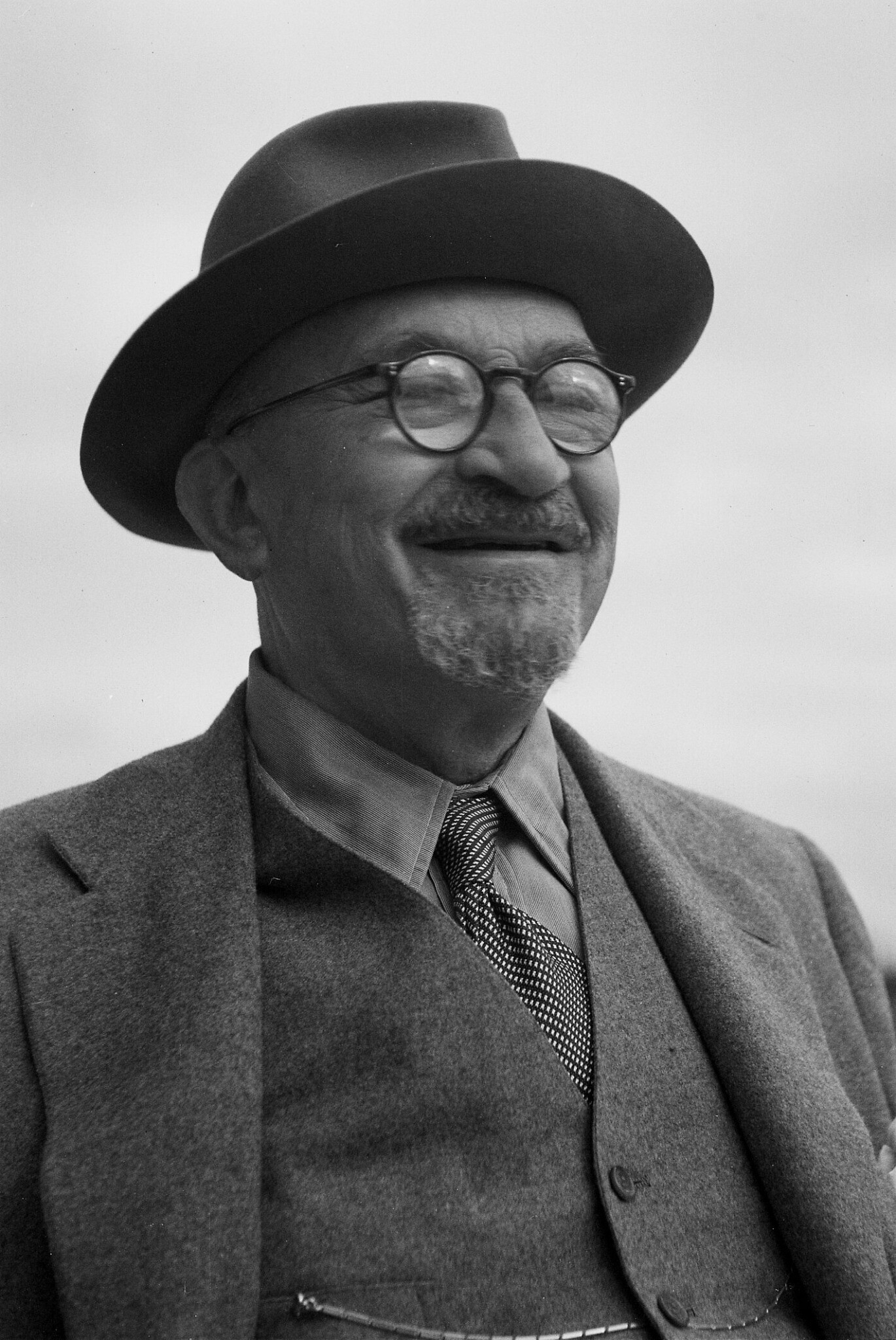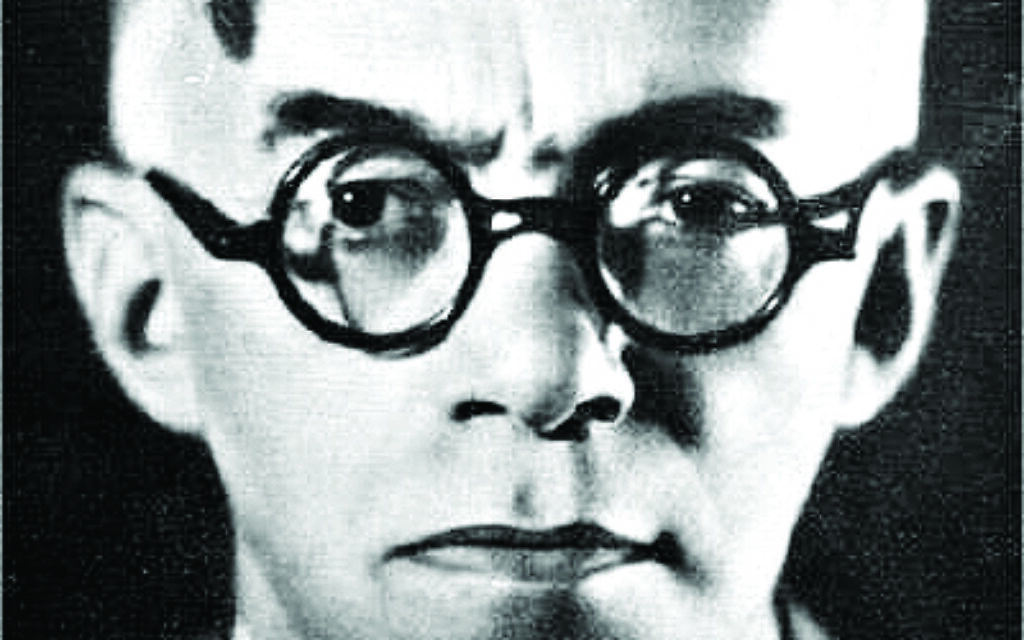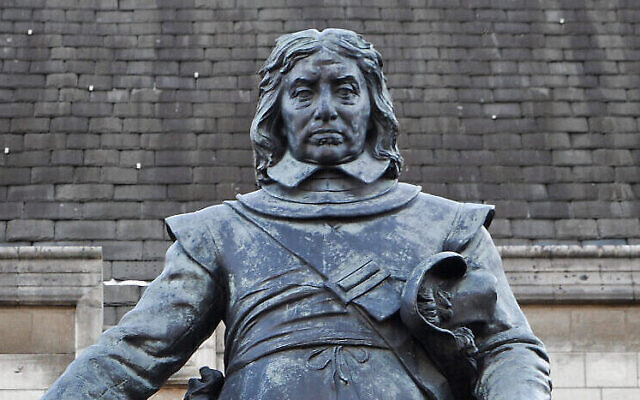OPINION: In praise of the great protector, Oliver Cromwell
2023 is a big year for us thanks to the man who founded the English Republic, writes professor Colin Shindler
Coronations are a time for celebration and contemplation since they connect all citizens with their own family history, stretching back through time. Yet Jews have a complex relationship with monarchy. As the rabbi tells Tevye and Leibesh in Fiddler on the Roof: ‘God bless the Tsar – and keep him far away from us!’
The Hebrew Bible speaks of stubborn prophets challenging powerful kings in the Land of Israel, while Diaspora Jews in more modern times pray each Shabbat for the welfare of the monarch and the Royal family.
Even so, given recent Jewish history, the actions of both republics and monarchies have emphasised a more traditional, cautious scepticism about the rulers and the ruled.
As Rabban Gamliel, the third-century sage, noted long ago in Ethics of the Fathers: “Be careful in your dealings with the ruling power, for they only befriend a man when it serves their needs. They appear as friends when it is to their advantage, but do not stand by a man in his hour of his need.”

Britain, however, was always regarded as an island of stability and fair play which stood out from the rest. It was in this light that the early Zionists, Chaim Weizmann and Vladimir Jabotinsky campaigned – often in the depths of great frustration with British policy – for a state for the Jews a century ago.
In Britain, a constitutional monarchy and a parliamentary democracy has allowed Jews to be different while being loyal. Jews have fought in the British Army from Waterloo and Ypres to El Alamein. When the Duke of Wellington died during the early years of Queen Victoria’s reign, the Jewish press commented: “We cannot forget that we are Englishmen in whom the fire of patriotism burns as fervently and as purely as in the greatest and the proudest in the land.” It was not only non-Jews who wished to build Jerusalem in England’s green and pleasant land.
Yet this year not only celebrates the coronation of a new monarch; 2023 also marks another important, hardly publicised watershed in the history of the Jewish community in this country. Jews have now spent more time as free citizens in this country, initiated by the English Republic of Oliver Cromwell, than the previous banishment and exile from it by the English monarchy.

Cromwell, the Lord Protector, allowed the return of the Jews in 1656 following Edward I’s decree of expulsion in 1290. Cromwell had orchestrated the execution of Charles I, abolished the monarchy and unknowingly set the scene for the emergence of the constitutional monarchy and parliamentary democracy, governed by the rule of law and a judiciary, independent of the whims of politicians, which exists today. Cromwell believed that he was a latter-day Moses, leading the chosen Protestant people of England out of the House of Bondage, the Stuart dynasty of Charles I, towards a truly promised land.
In Amsterdam, Menasseh ben Israel – born Manoel Dias Soeiro in Lisbon to a Converso father who had escaped the Portuguese Inquisition – wrote The Hope of Israel and dedicated its Latin version to the new government of the English Republic.

Throughout the decade of the Republic, the 1650s, Cromwell pushed for the return of the Jews. He was driven by a Protestant millenarianism, which paralleled Menasseh ben Israel’s Jewish messianism. Cromwell believed that the Jews would eventually convert, but in the meantime their expertise as traders to the New World, Africa and India would benefit the new English Republic.
Cromwell refused to accept the crown, but he was king in all but name – and while he lived, he protected the Jews who entered these shores. It is believed that Jews first celebrated Succot in this country by constructing a succah on the banks of the Thames during Cromwell’s time. Following Cromwell’s death, Charles II was restored to the throne in the name of stability by a fatigued country. The ‘Merry Monarch’ was astute enough to cultivate former republicans and to permit the Jews to remain.
Jews sought refuge in Protestant England after the centuries of persecution and humiliation by Catholic monarchs in other parts of Europe. Jews subsequently opposed any possible return to Catholicism in this country, preferring Protestant tolerance. For this reason, figures such as the financier Samson Gideon strongly opposed the rebellion of Bonnie Prince Charlie in 1745. If the Young Pretender had succeeded in his revolt, Britain would have reverted to Catholicism and in time the prince would have been proclaimed – as King Charles III.
More than 20 years ago, the BBC held a poll to mark a new millennium. It asked: ‘Who was the greatest Briton?’ Headed by Churchill, it was remarkable that almost 350 years after his death, Cromwell was listed at number 10, just a few steps behind Elizabeth I.
Amid all the wonderful pageantry of the coronation of King Charles III, the statue of Oliver Cromwell outside the Houses of Parliament continues to look down sternly on us – still the initiator of the readmission of the Jews to this country.
Even in a time of great acclaim on the accession of a new monarch, the Jews of this country will not forget how much is owed to him and to the puritans of the English Republic.
- Colin Shindler was the first professor of Israel studies in the UK
Our news editor @CohenJust reflects on our new King’s constant support for the Jewish community.
Long live the King!#Coronation pic.twitter.com/Vn8yacU20G
— Jewish News (@JewishNewsUK) May 5, 2023

Thank you for helping to make Jewish News the leading source of news and opinion for the UK Jewish community. Today we're asking for your invaluable help to continue putting our community first in everything we do.
For as little as £5 a month you can help sustain the vital work we do in celebrating and standing up for Jewish life in Britain.
Jewish News holds our community together and keeps us connected. Like a synagogue, it’s where people turn to feel part of something bigger. It also proudly shows the rest of Britain the vibrancy and rich culture of modern Jewish life.
You can make a quick and easy one-off or monthly contribution of £5, £10, £20 or any other sum you’re comfortable with.
100% of your donation will help us continue celebrating our community, in all its dynamic diversity...
Engaging
Being a community platform means so much more than producing a newspaper and website. One of our proudest roles is media partnering with our invaluable charities to amplify the outstanding work they do to help us all.
Celebrating
There’s no shortage of oys in the world but Jewish News takes every opportunity to celebrate the joys too, through projects like Night of Heroes, 40 Under 40 and other compelling countdowns that make the community kvell with pride.
Pioneering
In the first collaboration between media outlets from different faiths, Jewish News worked with British Muslim TV and Church Times to produce a list of young activists leading the way on interfaith understanding.
Campaigning
Royal Mail issued a stamp honouring Holocaust hero Sir Nicholas Winton after a Jewish News campaign attracted more than 100,000 backers. Jewish Newsalso produces special editions of the paper highlighting pressing issues including mental health and Holocaust remembrance.
Easy access
In an age when news is readily accessible, Jewish News provides high-quality content free online and offline, removing any financial barriers to connecting people.
Voice of our community to wider society
The Jewish News team regularly appears on TV, radio and on the pages of the national press to comment on stories about the Jewish community. Easy access to the paper on the streets of London also means Jewish News provides an invaluable window into the community for the country at large.
We hope you agree all this is worth preserving.






















